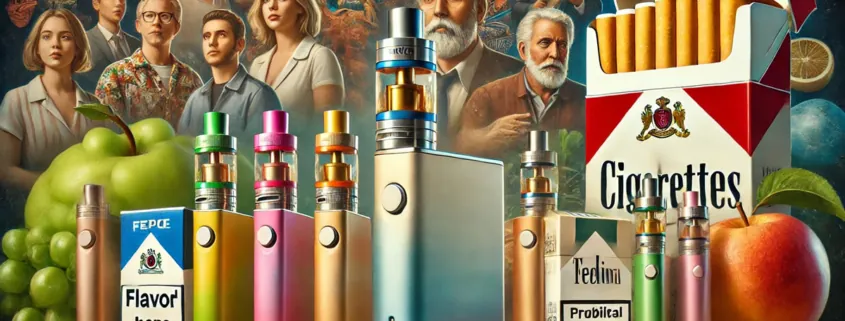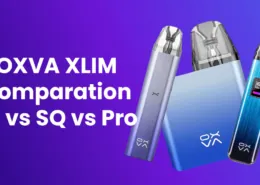Flavored Vape Bans May Increase Teen Smoking
A recent analysis published in the National Bureau of Economic Research has shed light on the unintended consequences of banning flavored e-cigarettes, also known as vapes. The study suggests that these bans may lead to an increase in tobacco cigarette use, particularly among young adults, raising concerns about the overall impact on public health.
The Debate Surrounding Flavored Vapes
The availability of flavors such as fruit, candy, and mint in vape products has been a topic of intense debate among public health experts. Many argue that these flavors significantly contribute to the appeal of vaping among young people. In response, various jurisdictions have implemented piecemeal restrictions on flavored varieties over the past decade, with the FDA even temporarily banning Juul, a popular vaping brand, in 2022.
Unintended Consequences: Shifting from Vaping to Smoking
However, the new working paper, titled “The Effect of E-Cigarette Flavor Bans on Tobacco Use,” reveals an unintended effect of these flavor bans. The researchers found that the youngest consumers, rather than quitting nicotine products altogether, appear to be shifting from vaping to combustible cigarettes, which are widely considered to be more harmful.
The study, conducted by scholars from institutions including Michigan State University and San Diego State University, analyzed data from the State and National Youth Risk Behavior Surveys and the Behavioral Risk Factor Surveillance System. Their findings indicated that while flavor restrictions led to a significant reduction in youth vaping by 1.2 to 2.5 percentage points, they were also associated with a 2.4 to 2.6 percentage point increase in the likelihood of smoking cigarettes.
Corroborating Evidence from Previous Research
This study is not the first to draw such conclusions. Research published by Yale University’s School of Public Health in 2021 also suggested that restrictions on vape products, intended to curb youth nicotine use, may have had the opposite effect and pushed teenagers toward traditional cigarettes.
Both studies emphasize the potential negative impact on public health, given the plausibly higher health risks associated with combustible cigarettes compared to e-cigarettes. The Yale researchers noted that “the net effect of ENDS flavor restrictions on public health may be limited or potentially even negative.”
Impact on Different Age Groups
Interestingly, the study found that while flavor restrictions effectively reduced vaping among younger users, they had little to no impact on older adults, who showed no significant change in vape use. This suggests that the unintended consequences of these policies may be more pronounced among the younger population.
Concerns About the Shift from Vaping to Smoking
Secondary analyses in the study revealed that various flavor bans did not lead to significant increases in other risky behaviors such as binge drinking or illicit drug use. However, the primary concern remains the shift from vaping to smoking, which poses a greater health risk due to the higher levels of toxicants in cigarette smoke compared to e-cigarette vapor.
Prevalence of Flavored Vape Use Among Youth
Recent data from the Centers for Disease Control and Prevention (CDC) and the National Youth Tobacco Survey highlight the widespread use of flavored vapes among young people. In 2023, the CDC found that more than 1 in 10 Americans aged 18 to 24 are regular e-cigarette users, while the National Youth Tobacco Survey reported that 89 percent of youth who vaped used flavored varieties.
As policymakers continue to grapple with the challenge of curbing youth nicotine use, this study underscores the importance of considering the potential unintended consequences of flavor bans. With nine states, the District of Columbia, and over 370 localities having already adopted policies restricting the sale of flavored e-cigarettes as of last year, it is crucial to monitor the impact of these measures and adjust strategies accordingly to protect public health effectively.
- HHC Vapes: What Are They & Are They Safe? - July 31, 2025
- Cannabis and Vape Shop Workers Rank Happiest in Nation - July 31, 2025
- Richmond, VA, Restricts New Vape & Tobacco Shop Locations - July 31, 2025









